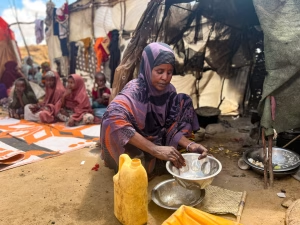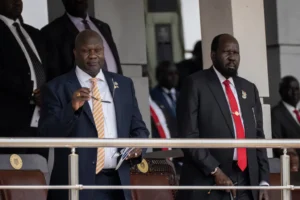[contact-form][contact-field label=”Name” type=”name” required=”true” /][contact-field label=”Email” type=”email” required=”true” /][contact-field label=”Website” type=”url” /][contact-field label=”Message” type=”textarea” /][/contact-form]
As the sacred journey of Hajj draws nearer, the Federal Capital Territory (FCT) of Nigeria is setting a proactive and commendable example on the global stage by prioritizing the health and safety of its intending pilgrims through world-class preventive measures.
In a continent where millions embark on the annual pilgrimage to the Kingdom of Saudi Arabia, Nigeria stands tall among African nations taking decisive steps to protect its citizens—starting from home. The FCT Muslim Pilgrims Welfare Board (FCT-MPWB), under the leadership of Director Kadiri Edah, has commenced a full-scale fumigation of the FCT Hajj Transit Camp in Bassan-Jiwa, Abuja. The exercise, carried out by the Port Health Services of the Federal Ministry of Health, is a prelude to the 2025 Hajj operations and signals a deep commitment to international public health standards.
“This is more than just preparation—it’s protection,” Edah stated during a facility tour. “We are doing everything possible to ensure that our pilgrims are healthy and safe, from the moment they gather in Abuja to their return from the Holy Land.”
With millions of pilgrims from across the globe converging on Makkah and Madinah each year, the risk of infectious disease transmission remains a key concern for public health authorities. The FCT’s initiative not only underscores Nigeria’s dedication to safeguarding its citizens but also highlights Africa’s readiness to meet global expectations in mass gathering health protocols.
Etamagazine recognizes that this moment goes beyond the religious significance of Hajj; it is a call to uphold African dignity through planning, protection, and global cooperation. In Edah’s words, the FCT is shifting from reactive to proactive, embracing a future where African nations take charge of their citizens’ wellbeing both at home and abroad.
The fumigation of the camp is part of a broader readiness plan that includes comprehensive health screenings, medical support, and sustained awareness for pilgrims. By setting the tone early, Nigeria is ensuring that its pilgrims not only fulfill a sacred obligation but do so in a safe, healthy, and dignified manner.
As Africa continues to deepen its voice in global health and mobility conversations, this step by the FCT reminds the world that we are not just participants—we are leaders in responsible and human-centered governance.










